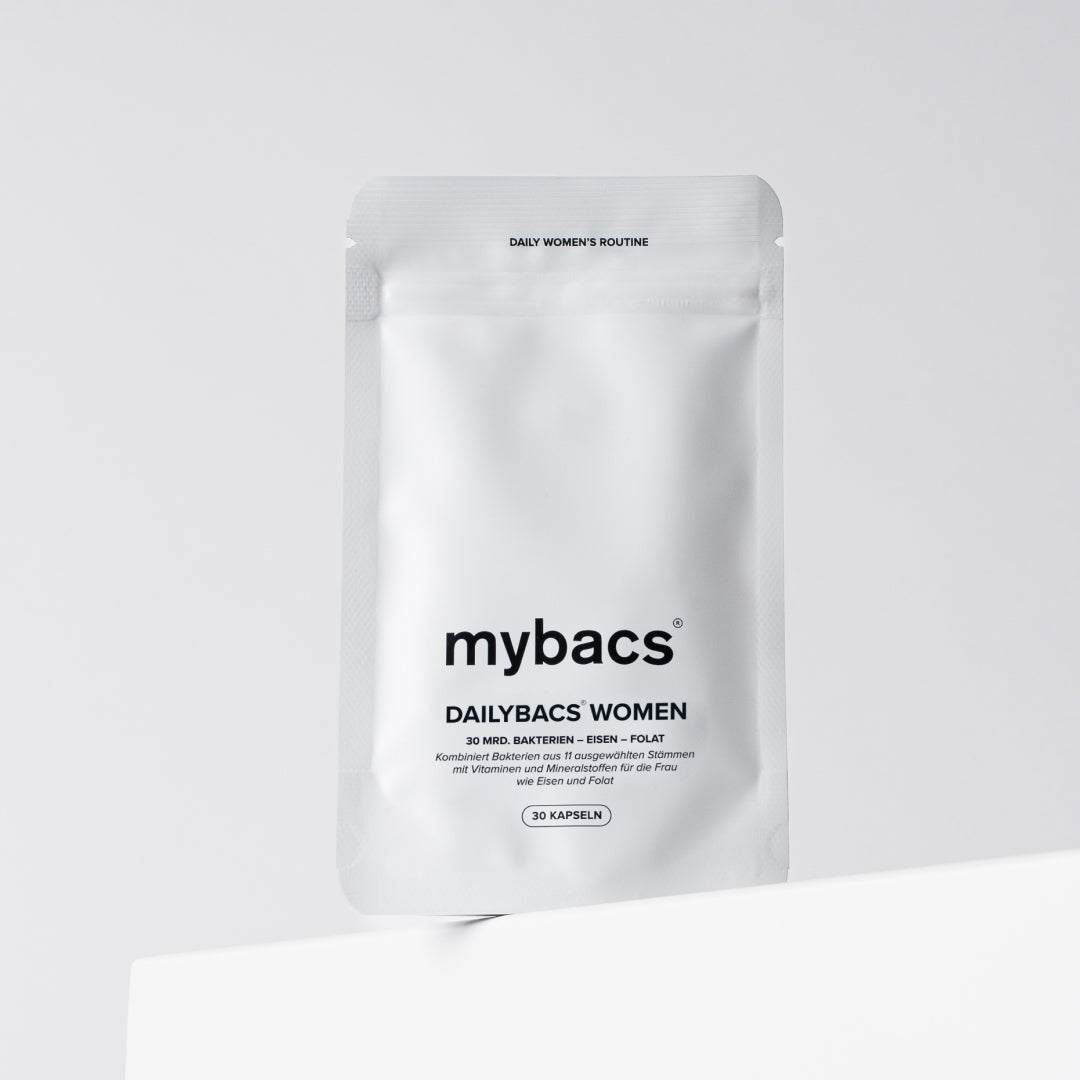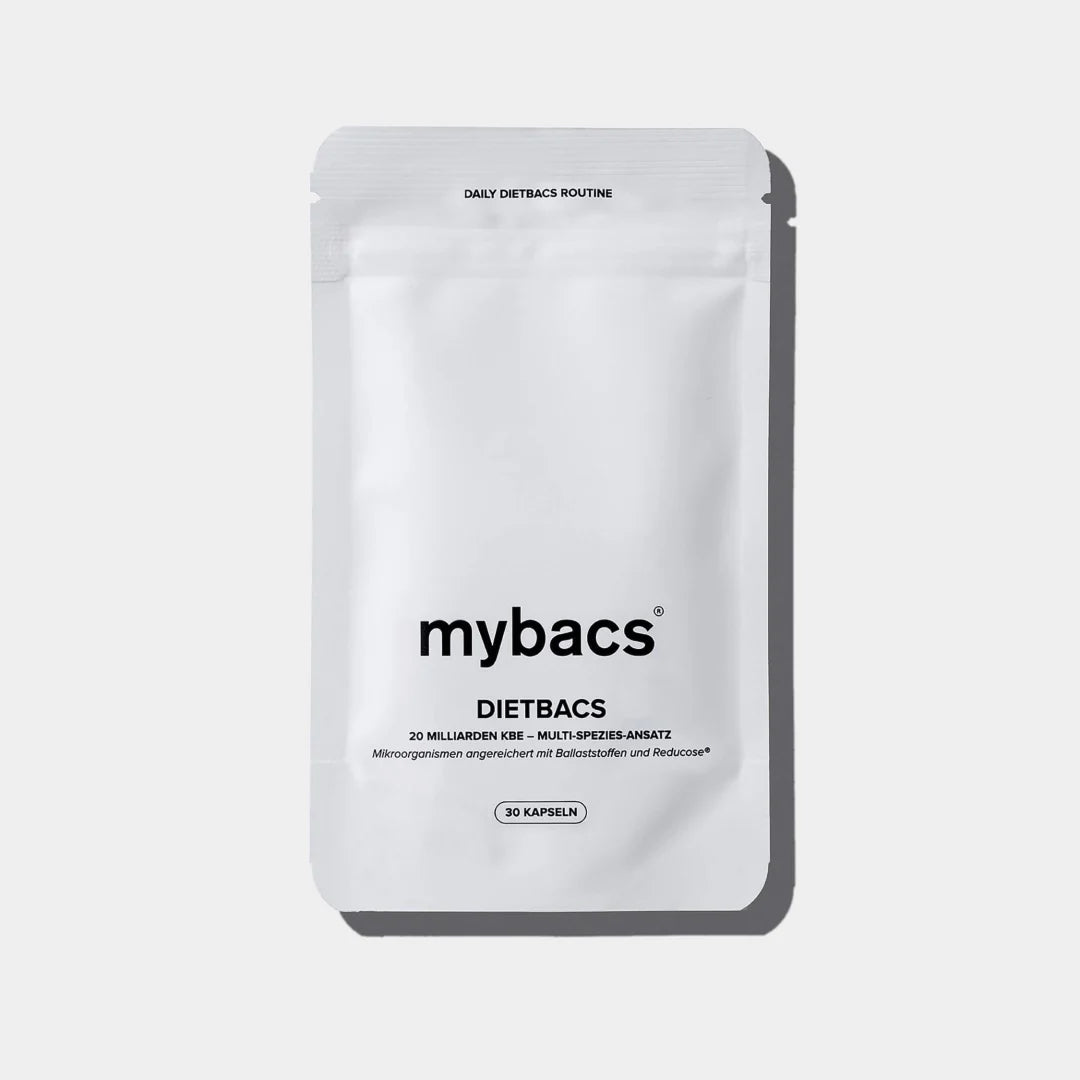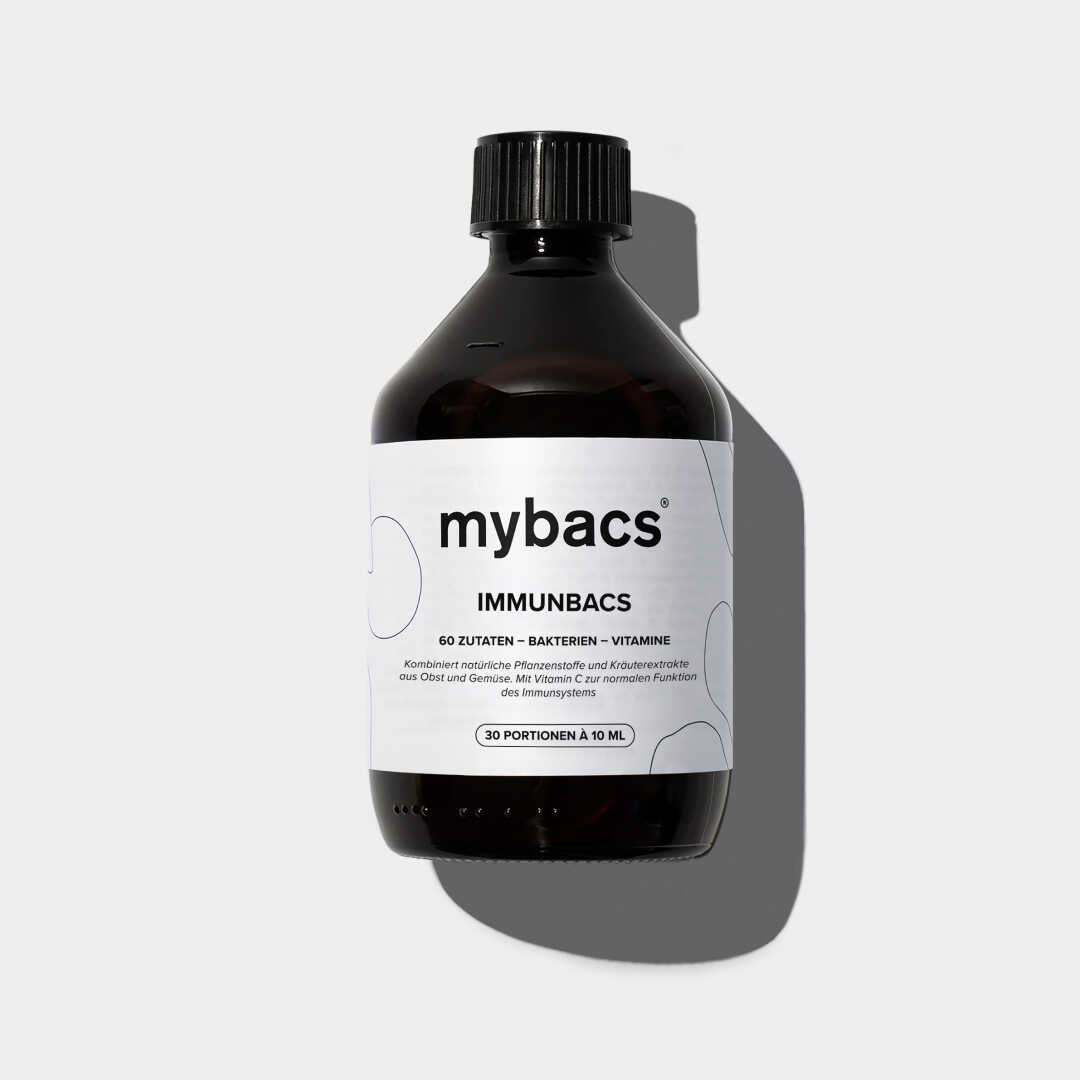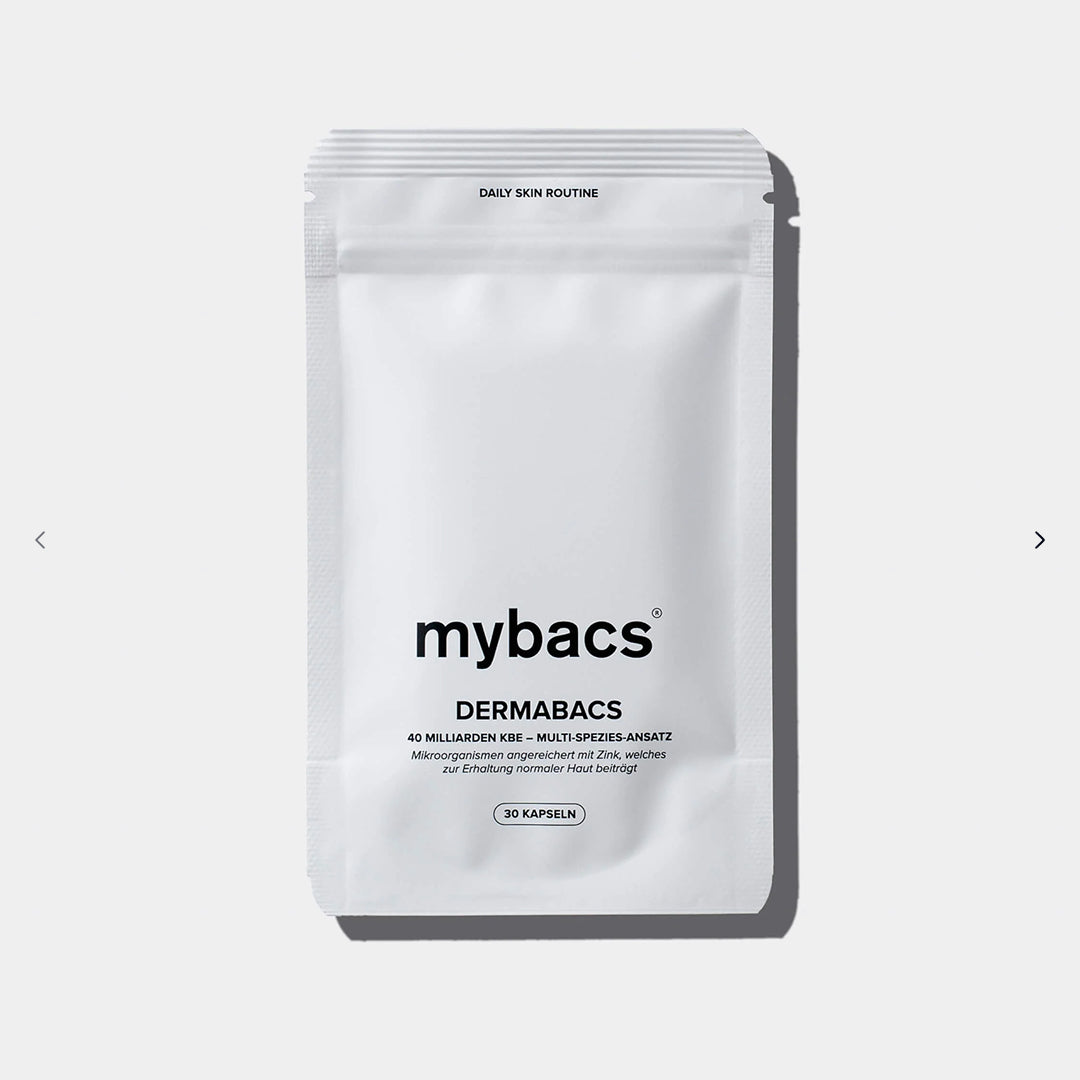How does happiness arise? How does joy actually arise? There are many answers to this question. Our mood is controlled and changed by a multitude of external influences. Mood is fundamentally something very volatile and unpredictable, as it sometimes changes more and sometimes less, positively or negatively. Whether it's the weather, the work environment, family and friends, lifestyle, health, relationships, etc. (this list could go on indefinitely). The important thing, however, is that all of these things can influence and change our mood. Our mood depends on a multitude of variables and influences. Perhaps the most important mood-influencing aspect on this list, however, is the food we eat every day. It has long been known that our diet has an impact on our mood – what we eat significantly influences our mood – whether positively or negatively.
What has now become the focus of scientific research, however, is the connection between our diet and our gut microbiome, or more accurately, the microbes in our gut, and our mental health. Various studies have shown that dysbiosis (an imbalance of "good" and "bad" bacteria in the gut), for example, can contribute to various mental illnesses and thus lead to, for example, bad mood, anxiety, and even depression.
This means, conversely, that when we eat, we shouldn't just pay attention to what makes our taste buds happiest. Rather, we should also consider the health of our gut microbiome and thus satisfy the trillions of microbes inside us! And why exactly is that? What we eat can positively and negatively influence the relationship we have with the tiny microbes inside us. This means that the food we eat every day can influence, shape, and change this relationship.
You can imagine it like this: Your microbes are your partner (just like in a human relationship) – aren't you happier when your partner is happy? So, happy gut, happy mood!
Fundamentally, our gut is a crucial part of who we are and also has a major influence on how we feel. Find out exactly why this is so now!
Neurotransmitters - Feelings of happiness produced by microbes
The microbes in our gut have a host of impressive abilities. They help us digest our food and thus ensure the optimal absorption of nutrients into our bodies—provided they are healthy. They also act like tiny bodyguards within us, as they can even neutralize or kill various pathogens! But that's not all, because various microbes can produce various vitamins and also neurotransmitters such as serotonin and dopamine. Incidentally, it is estimated that around 90% of the happiness hormone serotonin is produced in our gut! This impressive number alone shows how closely our mood is intertwined with our gut health, doesn't it?
The neurotransmitter gamma-aminobutyric acid (GABA), which is responsible for reducing anxiety and stress and also has a positive effect on our nighttime sleep, is also produced in our gut. Recent studies show that consuming probiotic, fermented whole foods can even help alleviate anxiety symptoms.This shows us even more that our diet can have a major impact on our mood and that we should do our best to provide the trillions of tiny microbes in our gut with the best possible nutrients.
Leaky Gut && Lethargy
What exactly is a leaky gut? Our intestines are lined with a protective barrier. When this barrier functions properly, it prevents pathogens, bacteria, and toxins from entering our bloodstream. If this is not the case, the intestinal lining usually has tears or holes – this allows invaders to easily enter our bloodstream and wreak havoc. This, in turn, can trigger inflammation and changes in the intestinal flora, which can lead to problems within the digestive tract and beyond. This inflammation can also cause symptoms such as headaches and lethargy, i.e. mental inertia or sleepiness.
This means, in turn, that an out-of-balance gut can negatively impact your mood. But what can you do to bring your gut back into balance? Probiotics are, of course, a good place to start, as they provide your gut with a whole host of little helpers that help restore your gut microbiome. A good example of this is our Dailybacs®- Through them, you consume a whopping 60 billion "good" gut bacteria every day and actively support the health of your microbiome! As a perfect complement, we've also developed the Mood Up Add-ons, which boost your mood to the next level with natural ingredients like ashwagandha and saffron.
Stress and the intestines
You can imagine our gut as a beautiful garden of diverse organisms and plants that can only thrive in balance and with loving care. If it's neglected, weeds seize their opportunity and spread quickly and uncontrollably. The beautiful flowers and herbs are displaced by the weeds. Our intestinal "garden" is home to a wide variety of thousands of different species and strains of bacteria. If our gut is in balance, it influences our well-being on many different levels. If this is not the case, health problems can arise, which in turn can negatively impact our mood.
However, there is a fairly simple way to influence our gut health and thus the bacterial composition of our microbiome. This can be achieved through a healthy, fiber-rich diet and a healthy and balanced lifestyle. Through the so-called gut-brain axis, the gut actively communicates with the brain. This connection shows that, on the one hand, the gut is negatively affected by stress. On the other hand, it illustrates that even an "unhappy" and unbalanced gut can lead to stress for the entire body.
This is precisely why it's extremely important to engage in stress management to protect your body sustainably. There are many ways to do this – be it meditation, breathing exercises, yoga, or taking a walk. Do what feels best for you and promises relaxation, even in tense situations.Regular exercise and a nutrient-rich diet have been proven to contribute to improved microbial diversity and thus boost your mood! Learn more about gut health and your mood here!
Microbes && Mood
We've already explained in this blog post that your gut health can influence your brain and mood, which can result in your body's anxiety and stress reactions. One point that shouldn't be overlooked, however, is that gut health also affects your digestion and can change it positively or even negatively! If the population of "bad" gut bacteria in your microbiome is too high, you not only run the risk of unpleasant symptoms like diarrhea or constipation, but it can also make it harder for your body to absorb nutrients and vitamins. And this can lead to various vitamin and mineral deficiencies. Vitamin B12 and vitamin D, in particular, are less well absorbed by a damaged gut—they are also important nutrients for mood and energy levels. This is precisely why they're included in our Mood Up AddOns to boost your mood to the next level! Low levels of these nutrients in your body can often lead to symptoms like fatigue, anxiety, and tension!
Ups and downs of blood sugar
It's well known that fluctuations in blood sugar levels can affect mood and also cause fatigue, irritability, headaches, difficulty concentrating, and a drop in energy. Of course, there are many factors that influence blood sugar balance, but our gut bacteria also play a significant role. If our microbiome is no longer in balance, it can be difficult for the body to keep blood sugar levels at a consistent level. And what exactly can you do to keep your blood sugar levels in balance? A healthy, balanced microbiome helps with this. You can easily support this by reducing refined sugar and highly processed foods. You should also replace simple carbohydrates with whole grain products.
We hope that we have been able to give you an interesting insight into the symbiosis of gut and mood and, in conclusion, we only have our well-known motto for you:
Happy Gut, Happy You!






